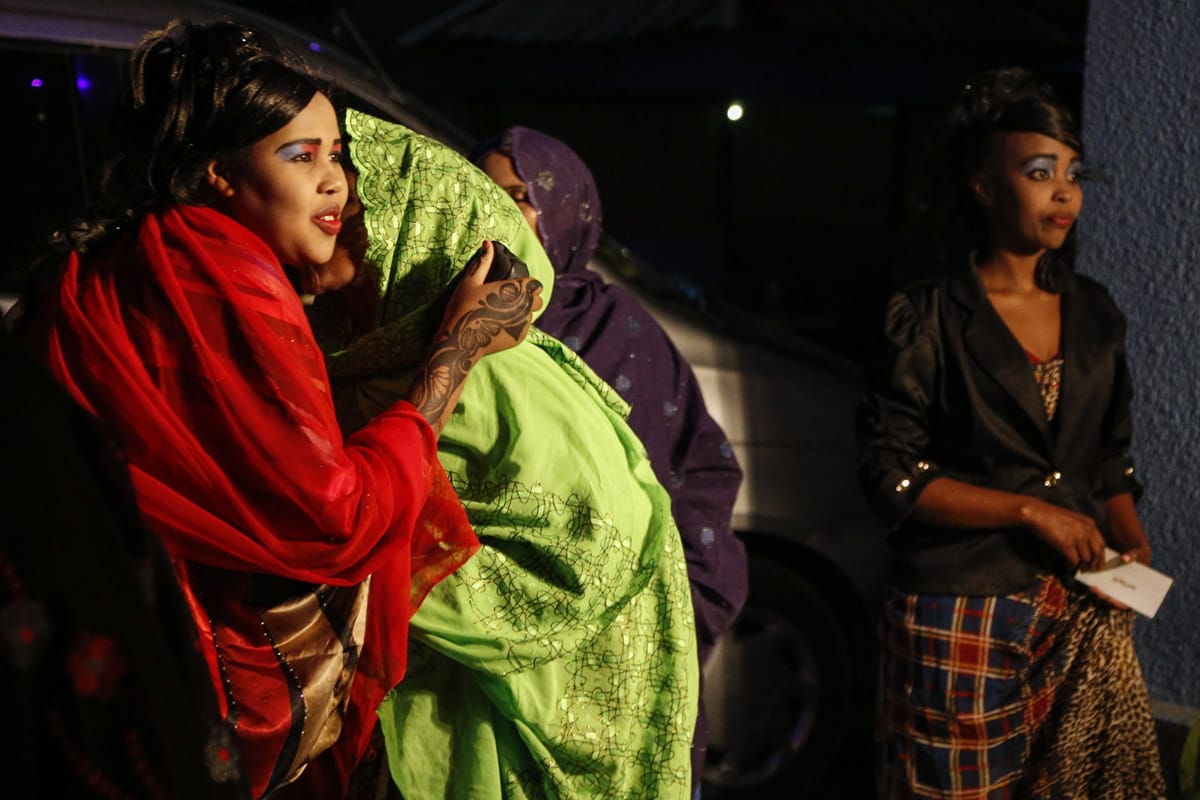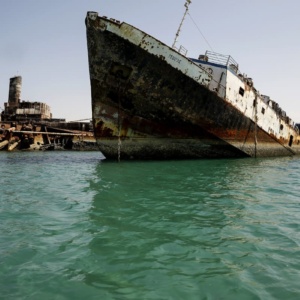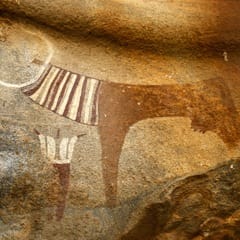Photo Gallery
Somaliland
Somaliland is a… country that doesn’t exist. Officially not recognized by the UN or any other country, this self-declared autonomous part of the infamous Somalia struggles to maintain peace and stability in one of the most violent region of the world, with an ongoing civil war the last three decades. Kidnappings, assaults, piracy, armed attacks and banditry are always on the headlines for Somalia, but rare for Somaliland.
People
The Somali people we met were suspicious about visitors, some of them friendly while some others hostile, aggressive and religious fanatic. In a population with quite a temper in their everyday life, maximized by the effects of Qat* addiction and unprecedented ignorance about the meaning of “tourism”, the scarce travelers do not feel completely safe. Personally, I had been thrown stones (huge deadly ones) tea in the face and had insistent questions about my religion. Thankfully, the most of people were curious and friendly. Welcome to the “horn of Africa” travelers.
*Qat is a plant with light stimulant effects, used (chewed) extensively on a daily basis in Yemen, Somalia and South Ethiopia. It is classified as an illegal drug of abuse in most of other countries. It’s a considerable part of the economy of these countries and at the same time rises social issues.
Places
Hargeisa
The unknown capital of the self-proclaimed state with the typical dose of African dust to coexist with glass facade bank buildings
Laas Geel
An amazingly interesting archaeological site with rock paintings aged many millennia ago.
Berbera
The port and trade center of the country as well as neighboring Ethiopia exudes an exotic atmosphere of abandonment, in a scenery of semi-demolished buildings and ship wrecks rusting on its shores.
Beach holidays in Somalia…
New Year’s Eve 2015
Who doesn’t dream of the Greek islands with their amazing beaches, or the postcard images of palm trees in the Caribbean, the Maldives or other exotic places? But for me and my like-minded travel buddy, on that New Year’s Eve we’re packed in the miserable transport vehicles of southeastern Ethiopia towards Somalia, a country that is in a civil war for the last 30 years and definitely is not top in the list of leisure travel.
Although we have bought double tickets each in the mini-bus to reserve some extra space, this hasn’t improved the available comfort. We had to change three mini buses and fight for a seat with the rushing crowd and their luggage, alive and not, for the Harar – Babile – Jijiga – Border route. At some point on the way, the front passenger began to throw out on the seat. Aside from the fact that I can not stand this spectacle at all, it was the era of the Ebola outbreak in Africa, and that gave me some kind of worry. The border line of the two countries is rather defined by the rubbish that is scattered in the unattended neutral zone. The necessary stamps filled the page with the Somaliland visa that we already got in Addis Ababa and we officially enter an … unofficial state. Welcome to the Horn of Africa, to Somaliland, an autonomous but unrecognized state of bloody Somalia, with its own flag, currency, government. Entering the next vehicle in the direction of the capital Hargeisa, intensifies the anguish of the unknown condition we will encounter, the safety situation … The risk of kidnap by Al-Shabaab militants for which two westerners would be a rather good loot. Just a few years before, bloody terrorist attacks had happened as well as violence against Christians and NGOs in 2011, that made them eventually leave the country. On the front of the vehicle, we see another “tourist”. He is a Russian, crazy Oleg who’s adding “pins” in every country on the map, especially those with weapons, something he can’t find in his country as he said. An 18-year-old gentle and smiling Somali girl studying at the University of Jijiga was also our company for the trip. Her dream was to go to Sweden, using her twin sister’s passport who is already there.
The first impressions from Hargeisa are not exactly what I expected. There is some kind of decadence with dusty roads, small street shops but all of them coexist with glass facade bank buildings, modern dwellings and enough traffic on the city’s sole central street. The hotel we found was called Oriental Hotel and it was much better than expected, affordable and quite clean. The clerk at our reception informed us that Greeks visit often this place, even a few weeks before. My travel buddy couldn’t believe that and bet a beer that he’d apparently never pay, since there is no alcohol in this strictly Islamic country. Commercial activity at the port of Berbera justifies the presence of sailors from all over the world. On the walls of the hotel there are photographs depicting it damaged and perforated by bullets during the war. A roofed patio in the center of the building gives a sense of oasis. We arrange with the Russian guy to celebrate the New Year’s Eve in a luxury hotel that gathers the upper class society and there will probably be served alcohol. Entrance costs $20, but there is no alcohol. We change our mind and asking for money back but unfortunately a receipt has been issued so they don’t accept our request. Yes, in Somaliland, unlike Greece, they are issuing receipts. We forward our request to the manager and, after waiting, he refused to refund the money. In our argument that we are tourists he gave us the reply: “And in your country I am considered an immigrant”. The party was guarded by armed men with kalashnikov, a fact that does not make you feel quite comfortable. At some point, there was a tension and some began to speak loud with the guards for unknown reason. Watching armed men in turmoil is not very reassuring, and in general you have the feeling that the Somalis are quite tempered. At the party we had some sweets and coca cola, charged extra. People were very friendly, most young expatriate guys who came to vacation in their hometown. Women’s dress code was quite free. They even drew me a girl for a romantic dance. Nevertheless, the whole event resembled to an 80s school party and our interest ended shortly.
Morning walk on the dusty streets of Hargeisa. Of the few sights that exist, the monument of the MIG plane, a memorial of the 1980’s war followed by the declaration of independence of the nation. An open market is of particular interest as well as the city’s shops with colorful graffiti that illustrate their activity. There are lots of shops that sell “chat” (or qat), the famous psychotropic plant that is a daily habit in Yemen and southern Ethiopia. People are relatively cautious because they are not used in seeing tourists. Some are receptive to the photos, while others not. Everyone asks us if we are journalists, even drivers stop on the road to ask the same question. Although some speak English, they do not understand the word “tourist” but just the word “visitor”. The volume of my camera intensifies their distrust. You can find everywhere street currency exchangers with in bulky bundles of banknotes. I have an information that on the black market you can issue a Somali passport !!! My travel buddy is interested in this souvenir that costs $40. A green booklet appears, handwritten info fills the first page and the photo is placed on it. However, there is some delay. One of those involved, tells us we need to receive it later, but the lure of cash forces him to uncover the official stamps of Somalia, press them on the page, stick the nylon of lamination and … here we go my friend with your new Somali passport. A woman approached us, and when we told her our ancestry, she told us that her son was killed in Greece. It’s one of the moments you really don’t know how to deal with.


Later we were approached by an elderly man who asks us where we’re from. He starts talking to us in fluent Greek. He was a sailor in Greek ships that has also lived for some time in Piraeus. The conversation is interesting and takes long so we sit in a local café to hear and record his story. A crowd of curious people is gathering around us. Some are asking insisting questions to our friend. He informs us they’re not of interest and we feel we have gained an intimacy with the locals. But the questions to the old man insist. He scorns them in Greek and Somali and reveals that some fanatics insist on our initiation in Islam. I am sure i hear the phrase Al-Shabaab! Obviously the situation is inappropriate for dialogue and we leave the place in rush. In the evening walk on the streets, among the retail outlets of the vendors, another incident came to confirm that we are in a country where hostility subsides. Perhaps it happened because of the camera just hanging from our neck and … suddenly a cup of tea was thrown into our heads. It took me a little to realize the nature of the attack and to reconstitute, losing my composure and grabbing a stone to pay back. The enemy had disappeared, and I was holed by three men trying to appease me, one of whom said he was a policeman and kindly told me that this was an sole incident of a psychopath. We continued to one of the city’s best restaurants where we told the story to a gentleman who informed us that it is not safe to stroll at night in some parts of the city. In an adjacent room there was an interesting wedding event.



Back in Hargeisa, we meet two more tourists, increasing the number in the country to 5. Was a couple of a British and an American who speeded holidays this … not so romantic place. We shared the cost of a car to leave the city. After a while, at the first road block we were refused passing because we didn’t have the compulsory military escort. We returned to Hargeisa where we managed to persuade the police commander to allow travel without guards, at our own responsibility of course.

We continue to Berbera, the second city and major port of the country. After two weeks in the deserts of Sudan and the dust of southern Ethiopia, I finally see the sea, the bay of Aden. We are heading to a bungalow-style property just off the city, which despite being almost empty, its price was prohibitive. We decide not to stay there and tell the driver to leave us on the beach where we throw our luggage in the sand and enjoy our swim in the endless coastline of Somalia. A police car parked nearby and informed us that we’d be under their protection until sunset. We finally found clean rooms in one of the two hotels in the center of the small town. Like every seaside place that respects itself, Berbera has to offer plenty of fish food. And with such low prices, it is a must to enjoy huge barracuda and other great fish of the ocean, until our stomaches are totally full.
The couple left early at dawn to continue their trip and the rest three of us started exploring Berbera. Among the dust-blown neighborhoods, the half-demolished buildings from another era, the wandering camels, goats, dogs and crows, we met friendly and smiling people who welcomed us and wanted to take pictures with us. The feeling of the harbor town was completely different, much more hospitable than that of Hargeisa.
The bay of Berbera spreads dry in low tide under the hot sun of Africa. In the background, a shipyard cemetery is our target with the help of a local boatman. The rotten metal sheets of the lying giants sinking into the green waters, of ships once traveling proud through the oceans of the planet. A whole crowd waits on the pier for the curious event of the foreign visitors and we will will continue for another swimming day together with young local guys who, although they did not speak English, they shared friendship and happiness.


Somaliland despite some hostility left me with intense, unprecedented, unique impressions. As a little-visited part, it retains its own authenticity and it introduces you to Somali culture, which the thirty-year civil war makes it prohibitive to the rest of the blood-stained Somalia.
Share this Post





